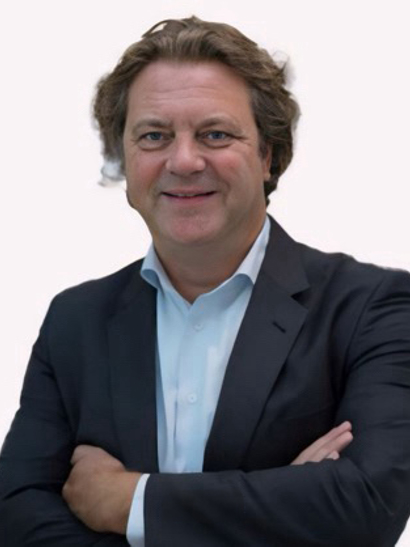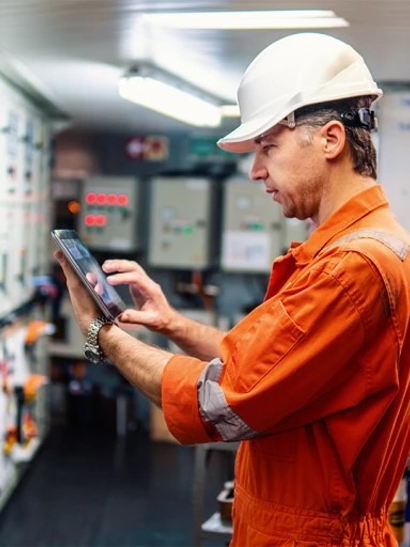This year represents 50 years since Lloyd’s Register (LR) opened its first office in Dubai. The organisation has been a long-standing adviser to the region and has collaborated on several high-profile projects over the years, including Das Island LNG terminal, 100 miles offshore of Abu Dhabi, and Port Rashid in Dubai, both in the 1970s.
More recently, this year (2024) Richard de Vries was appointed as Vice President of Business Development for the Middle East & Africa and India. As the organisation’s most senior official in Dubai, he is commercially responsible for that region. De Vries is well known in the Middle East’s shipping and engineering scene as he was based in Dubai from 2016 to 2020. He spent the last three years in Singapore, first as area commercial manager, and then area manager for South Asia, Middle East and Africa (SAMEA), before returning to Dubai.
“LR has moved to a more centralised model, focussed on global service and regional expertise,” he tells Horizons. “We now have a network of senior representatives in each major region. Alongside my commercial responsibilities, I'm therefore also responsible for looking after the people on the ground here,” he says.
The nature of classification has changed over the past two decades from a focus on class and survey to providing consultancy services to the industry. “Our role as a trusted adviser to the industry is growing,” he says. “As shipping goes through this period of unprecedented change we're advising on ‘techno-economic’ modelling to support the energy and digital transition, and to help our customers achieve a competitive edge. The role of class societies has never been more important.”


In 2022, LR acquired OneOcean, a comprehensive portfolio of digital tools that provides insight on voyage and environmental planning. Using data from over 500 environmental zones, 170 nations, numerous flag states and 12,000 ports, operators can use this information to sail anywhere with confidence knowing that regulations will be adhered to and the environment protected. “The Lloyd’s Register OneOcean Platform is used by 22,000 vessels and maintained by a dedicated in-house team,” says de Vries. “Digitalization is playing a huge part in emissions reduction and LR OneOcean plays a key role in how we are supporting the industry.”
LR works with a number of significant stakeholders in the Middle East and Africa regions, with gas and offshore as increasingly important sectors. Qatar is no longer the only country in the region placing orders for liquefied natural gas (LNG) carriers, said de Vries. Meanwhile, a lack of available building slots in South Korea is preventing expansion of the nation’s shipbuilding industry and holding global LNG back. De Vries anticipates that this will lead to more orders for LNG vessels from the Middle East being placed with Chinese yards in future.
Turning to the offshore sector, he highlights the momentum in regional activity as well as globally. “There's a lot going on in the offshore sector, which is booming. Looking at the recent uplift in oil and gas, opportunities in this space are passing LR’s highest expectations.”
He said Saudi Arabia, which has set a national target of 40 million TEU throughput by 2030, is “building big” in its efforts to develop port assets, with capacity under way or completed at Jazan, Jeddah and Dammam. Meanwhile, neighbouring countries will expand its fleet as well, de Vries anticipates, as additional tonnage will be required to support the regions’ expanding port capacity.
Sub-Saharan Africa is buzzing and LR is getting into position to take advantage. In addition to existing presence in South Africa and Nigeria, it recently opened an office in Mozambique and is studying the possibility of further outposts in three other countries.
“We are investing in sub-Saharan Africa. I think there is huge potential there. We were the first class society to set up in Mozambique, but we are also looking at Tanzania, Namibia and Kenya. Tanzania is sitting on an even bigger gas bubble than Mozambique. I believe 70% of African households are still without electricity. The only thing that is really going to change that is the use of LNG,” he says.
Political instability in northern Mozambique has complicated the efforts of international energy companies to develop natural gas assets at the offshore Coral field in the north of the country. Last year, reports said Italian major Eni SpA’s second offshore Floating LNG (FLNG) platform in the Rovuma Basin was set to begin production in 2027. Meanwhile, in November 2022, the 3.4 million tons per annum (mtpa) Coral South FLNG shipped its first cargo of LNG.
“The projects are starting up again. We see Eni, ExxonMobil and other large companies coming back. There's definitely something happening. If you look at the projects, they are all major. Coral South, of course, is an LR class asset. We are very hopeful that Coral North will be ordered and eventually come online as well,” he says.
Now in his second stint in Dubai, de Vries is firmly back at the tiller. “I'm really happy to be here. I love the Middle East and I think there's a lot of potential, especially for LR.”







